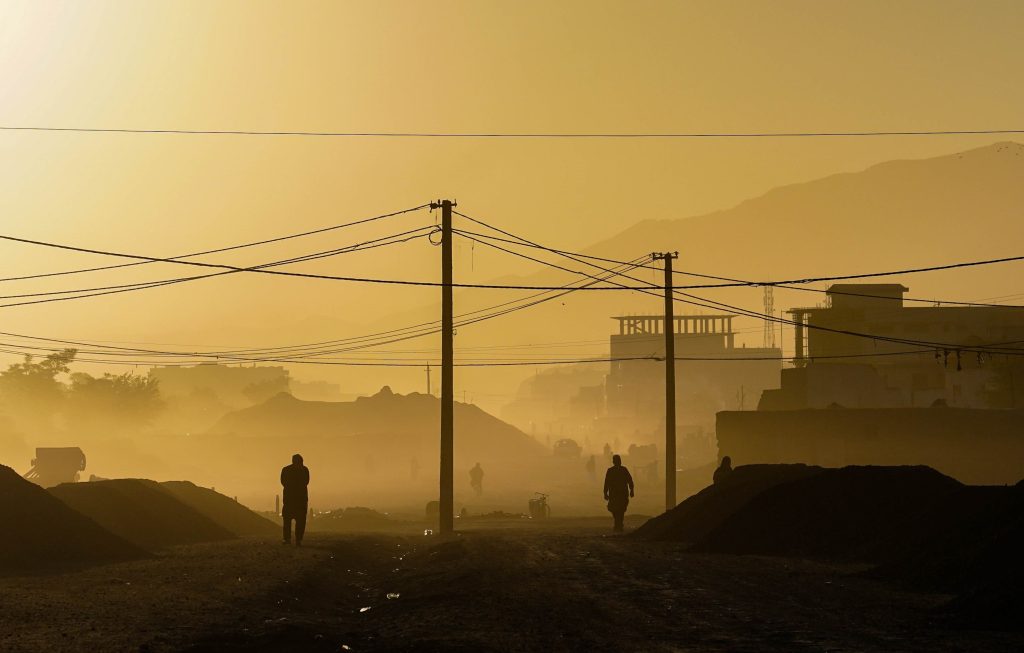
‘The women in this part of Kabul were a different breed from the women in the poorer neighbourhoods’, Khalid Hosseini, A Thousand Splendid Suns
In A Thousand Splendid Suns, Khalid Hosseini an Afghan-born American novelist, outlines a mother-daughter story within the context of a contemporary Afghan society when published in 2007. As the above quote demonstrates, Hosseini tries to reflect what he recognised as a ‘thriving city’ that ‘by the standards of a conservative religious country… was quite liberal’ in his memory of living in Afghanistan in his early years.
Like the rest of the world, Hosseini saw the gradual reclaiming of Afghanistan; as ‘Kabul had fallen’, he watched woefully. Hosseini now comments that he has ‘no idea what the future holds’. That he is ‘deeply sceptical’ of Taliban claims their rule will be different to the one already known across generations in Afghanistan. Despite assurances of safety offered by the Taliban to Afghan people, Afghans remain fearful, as they hold the memory of how their previous behaviour has been laced with systematic terrorism, brutality, and the murder of its own.
The Taliban is remembered for its disrespect and destruction of the country’s history as seen with the Bamiyan Buddhas, and the removal of the country’s enjoyment of art and music. Both men and women were confined by its rule. Women experienced a type of imprisonment, where they were ‘denied… proper healthcare’ and lost ‘their right to education’. Women were hidden and forbidden to walk without male accompaniment.
There is an emerging fear that ‘women’s freedoms won since 2001 will be crushed’. For example, many women continued to wear the burqa after the Taliban’s fall in 2001 in line with their personal religious belief, but it was also rejected ‘by millions of others across the country [which] became a symbol of a new dawn for the country’s women, who were able to dictate what they wore for themselves again’. Therefore, the wider anxiety shared by Afghan women concerns the loss of their right to autonomy. Women in Herat City have already experienced this under Taliban control after a declaration ‘informed women that wearing the burqa was now mandatory in all public spaces’ once the city had fallen. For others it may just be a matter of time.
Western nations and the G-7 block have so far refused the Taliban formal recognition, as demonstrated by the US Ambassador Linda Thomas-Greenfield sharing that the US for one, will ‘”certainly not” recognise any Taliban government breaching human rights’. But failure to be granted international recognition does not omit the group from continuing to assert their authority over the country and its people where the life and future of all Afghans, and Afghan women and girls especially, remains in question.
What Hosseini’s work demonstrates, among others including Fariba Nawa and Tamin Ansary, is to provide a window into life lived under the Taliban before, and what life could again become. It is, however, just a window – where in such a tumultuous time the world should feel at a duty to develop its concern, care and understanding for and of Afghanistan.
To follow BBC Lyse Doucet’s recognition of the ‘judge them by their actions, not their words… mantra of a fast-expanding league of Taliban watchers including Afghans, foreign governments, humanitarian chiefs and political pundits the world over’ is to acknowledge that:
‘it is one thing to conquer a nation, but a whole other matter to govern it’ – Khalid Hosseini, The Washington Post.
–
Where to learn more and help:
- Women for Women International
- Afghanaid
- UNICEF Afghanistan Fund
Image credits: Photo by Mohammad Rahmani on Unsplash
